Irritable bowel syndrome (IBS) is a very common digestive ailment that affects the large intestine. An estimated 1 in 7 people around the world suffer from IBS.
However, there is no definite cure for IBS as it is a chronic condition that needs long-term management. One practice that can help is taking vitamins and supplements. In this article, we will be discussing the best vitamins for IBS.
Types Of IBS

IBS comes in several forms. Just as symptoms vary depending on your condition, determining the correct treatment also lies in knowing the exact type of IBS that you have, and they are the following:
- IBS-C or IBS with Constipation – Bowel movements are less frequent and stools are hard and lumpy. Often, you have to strain to defecate successfully. IBS-C is also accompanied by abdominal pain, gas, and bloating.
- IBS-D or IBS with Diarrhea – This is the direct opposite of IBS-C and is characterized by abnormal bowel movement with loose stools. You may also suffer from abdominal pain, excessive gas, and frequent urges to go to the toilet.
- IBS-M or IBS with Mixed Bowel Habits – Abnormal bowel movement occurs with alternating constipation and diarrhea. Stool must be either hard or watery 25% of the time each to be considered IBS-M.
Apparently, research reveals that IBS is not one disease by itself but that its development can be associated with other pre-existing medical issues.
How To Tell If You Have IBS
There are various signs and symptoms of IBS and they range from mild and moderate to severe. Here are some of the more common symptoms which can go on for a long time and may even affect the quality of life:
- Increased gas or flatulence
- Bloating, cramping, and abdominal pain when having a bowel movement (BM)
- Changes in stool appearance
- Mucus in the stool
- Changes in frequency of bowel movement
It’s time to see a doctor when you begin to have weight loss, unexplained vomiting, rectal bleeding, iron-deficiency anemia, or persistent pain that is not relieved by moving your bowels or passing gas.
Probable Causes Of IBS
Although the precise cause of IBS is unknown, The Mayo Clinic states that these factors appear to encourage the condition:
- Intestinal contractions
- Nervous system
- Stress in the present and early life
- Severe infection
- Changes in gut microflora
- Food triggers
Vitamins And Supplements
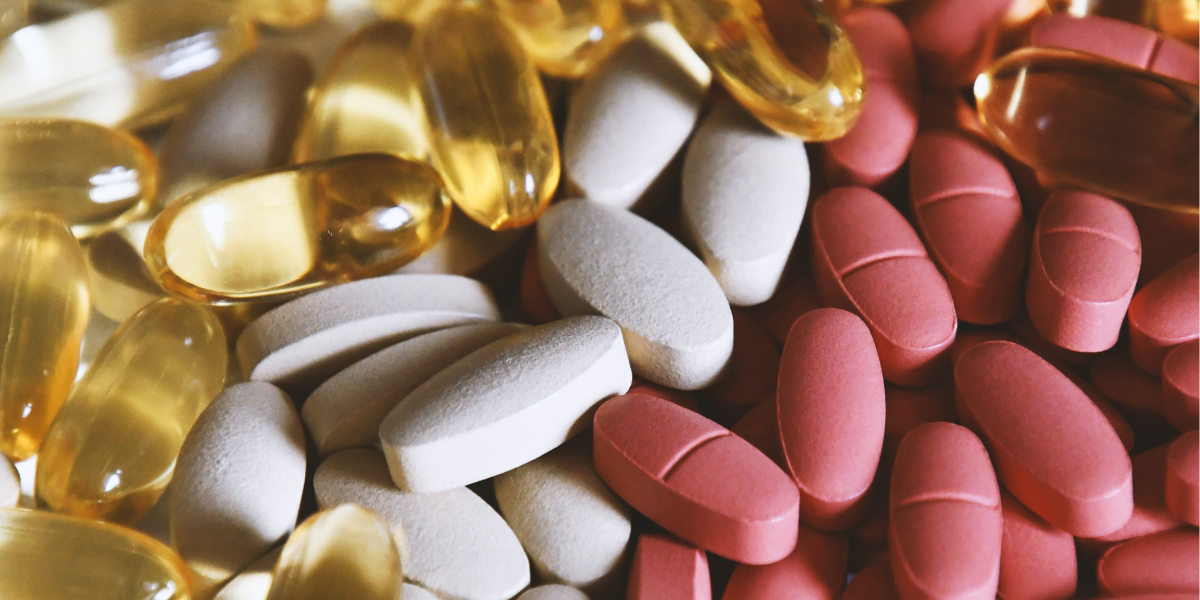
With all the supplemental products available in the market today, you probably get confused about how to tell vitamins and supplements apart especially since they look so similar.
All vitamins are considered dietary supplements, but not all dietary supplements are vitamins. Supplements are products that enhance health or add nutritional value to your diet. They can be bought without a prescription and are available in powder, pill, or liquid form.
On the other hand, vitamins are a type of supplement along with minerals and herbal products or botanicals. They are organic compounds that help our body maintain optimal function.
Should You Take Vitamins?
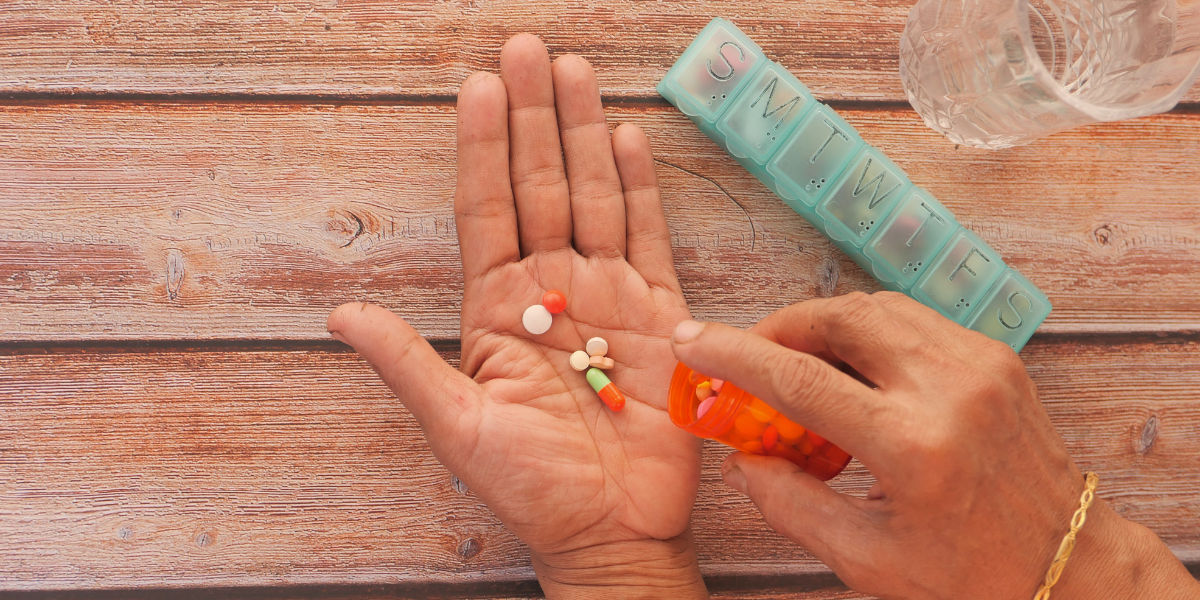
People take vitamins and other supplements to ensure that they get enough of the essential nutrients to maintain good health. More than half of all Americans take dietary supplements daily or occasionally. However, not everyone actually needs to take vitamins.
According to Carol Haggans, a registered dietitian and consultant to the National Institutes of Health (NIH), “It’s possible to get all the nutrients you need by eating a variety of healthy foods so you don’t have to take one. But supplements can be useful for filling in gaps in your diet.”
If you do need to take vitamins, here are some reasons why you should:
- You have some restrictions on your diet.
- You want to cover all the essential daily nutrients.
- You are aged 50 and above.
- You are pregnant or breastfeeding.
- You have food intolerance or allergies.
- You have a medical condition that impairs nutrient absorption.
Best Vitamins For IBS
Treatment for the more severe symptoms is medication and counseling. However, the management of mild to moderate symptoms can be helped by over-the-counter vitamins and supplements. Here are some of the best vitamins for IBS:
-
Doctor’s Best Vitamin D3 5000 iu
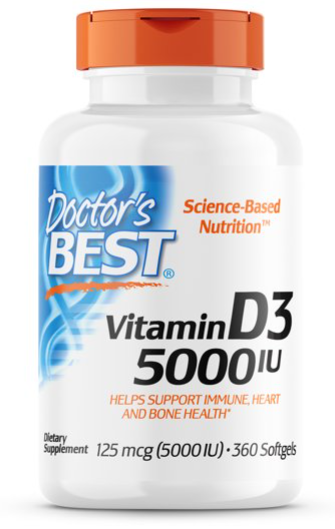
Doctor’s Best Vitamin D3 provides D3 to regulate phosphorus and calcium levels for a healthy heart, teeth, and bones. The skin produces Vitamin D3 by absorbing the sun’s UV rays but a limited amount may also be obtained from foods such as eggs, fish, liver, and mushrooms.
Sun protection and climate factors may cause low Vitamin D3 levels. Vitamin D3 promotes optimal immune, cardiovascular, bone density, and cellular function. Doctor’s Best Vitamin D3 is vegan, gluten-free, soy free, and non-GMO. One soft gel capsule is supposed to be taken once daily with food.
Recent findings show that Vitamin D deficiency has been detected in many people suffering from IBS. Fortunately, symptoms can be reduced by increasing Vitamin D levels.
A study done at the University of Sheffield in England revealed that Vitamin D supplements can help in the management of IBS. Even more surprising, the idea for the study came not from the researchers, but from conversing with IBS patients.
According to Bernard Corfe, Ph.D., principal investigator in molecular gastroenterology at the University of Sheffield and lead author of the study, “The Vitamin D/IBS link wasn’t spotted by medics or scientists. It came from patients.”
He added that “Vitamin D is an important factor in multiple diseases and areas of health, including musculoskeletal, immune, mental health, and other gut health conditions, including colorectal cancer and IBD.”
Colfe’s research team reviewed and integrated all available data on Vitamin D and IBS and determined whether Vitamin D supplements can be beneficial for IBS symptoms.
They discovered that Vitamin D deficiency is rampant among IBS patients around the world regardless of geography and external conditions.
While the reason why IBS patients seem to have Vitamin D deficiency remains unclear, some theories consider diet and daily habits as factors in the development of the condition.
In addition, there has been some evidence linking Vitamin D deficiency to inflammation. Chronic and minor inflammation in the intestinal wall appears to be a factor in the development of IBS after a GI tract infection.
A letter published in Alimentary Pharmacology and Therapeutics in 2013 revealed that Vitamin D has the tendency to inhibit these inflammatory mediators
With these developments, more and more gastroenterologists nowadays are checking their patients for Vitamin D deficiency.
One of them is a professor of gastroenterology at the University of Wisconsin, Dr. Arnold Wald, who said that he often asks patients to test for Vitamin D deficiency and many of them have it. He added that Vitamin D is very inexpensive to order and the deficiency is very inexpensive to treat as well.
If you suspect that you have IBS, consult with your doctor about Vitamin D but don’t be discouraged if it doesn’t work as symptoms and responses to treatment may vary.
-
Nature’s Way Vitamin B6 100mg
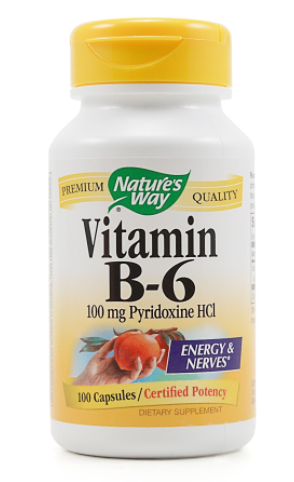
Nature’s Way Vitamin B6 ranked first in Labdoor’s Top 8 Vitamin B6 Quality Ranking report which analyzed 8 of the top-selling Vitamin B6 supplements in the US for Vitamin B6 content and heavy metal contamination.
Vitamin B6 is essential to amino acid and protein metabolism. It is also an important component for the central nervous system (CNS) to be able to produce serotonin, a critical neurotransmitter.
This supplement is gluten-free and does not contain salt, sugar, wheat, yeast, soy, corn, dairy products, artificial colors and flavors, or preservatives. Its recommended dosage is 1 capsule daily, preferably with food.
Vitamin B6 is a type of water-soluble vitamin present in bananas, avocados, nuts, beans, poultry, meat, and whole grains. Adults are advised to consume between 1.3 to 1.7 milligrams of Vitamin B6 per day to reach the percentage of recommended dietary allowance (RDA).
Unfortunately, some IBS patients are unable to digest grains very well. If you happen to be one of them, better get your daily fix of Vitamin B6 from another source.
A small study published in Nutrition Research’s May 2011 issue showed an association between Vitamin B6 and the severity of IBS symptoms. A group of 17 patients with IBS was asked to participate in the research. Every evening, their symptoms and dietary intakes were recorded and assessed on diary cards for 7 days. A high symptom score was linked to low Vitamin B6 levels. Subjects who consumed the lowest amount of Vitamin B6 had more frequent and severe IBS symptoms.
-
Life Extension Buffered Vitamin C Powder 454g or 1 lb.
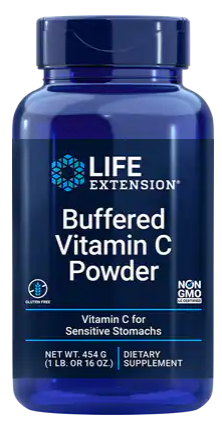
Life Extension Buffered Vitamin C Powder contains the four buffering minerals calcium, magnesium, zinc, and potassium that, when mixed with water, does not irritate the stomach and intestinal lining.
Buffered Vitamin C has powerful antioxidant properties, supports the cardiovascular and immune systems, protects tissues from oxidative stress, and is vital to collagen formation. It is also vegetarian, gluten-free, and non-GMO.
Vitamin C can help with IBS that is accompanied by constipation. In this type of IBS, the gastrointestinal muscles don’t contract enough to completely empty your bowels.
However, ingesting Vitamin C can be a challenge to those who have a sensitive digestive system. Taking Vitamin C for IBS should be done with care because it has a laxative effect and can cause diarrhea when it reaches the stomach. It may also cause gas and bloating which happens when the acidic nature of the vitamin reacts with the alkaline environment of the lower intestinal tract.
Life Extension Magazine recommends buffered Vitamin C powder because it is less acidic and easier on the stomach compared to plain Vitamin C which has a higher acid content.
The recommended daily intake for Vitamin C in women should be around 75 milligrams per day and 90 milligrams for men. When you don’t get enough Vitamin C from fruits and vegetables, then your diet can be augmented by supplements.
Additional Minerals And Nutrients For IBS
Aside from vitamins, here are other natural agents that can help relieve symptoms of IBS and support digestive health:
- Anise
- Bacillus Coagulans
- Prebiotics
- Probiotics
- Bifidobacteria
- Blond Psyllium
- Magnesium
- Fermented Milk
- Calcium
- Guar Gum
- Lactobacillus
- Peppermint
- Probiotics
- Soy
- Wheat Bran
It is important to remember that some supplements may cause problems if you have pre-existing medical conditions, and they may also have side effects when taken with other medicines.
What To Do When Taking Vitamins For IBS
Here are some tips to follow when taking vitamins to ease discomfort and maximize absorption:
- Try to balance your vitamin doses.
- Always take your vitamins with food, unless indicated otherwise.
- Consult a pharmacist about the various effects of vitamins.
- Take vitamins one type at a time.
Other Ways To Treat IBS

Taking vitamins and other dietary supplements is not enough for you to combat IBS. Since the cause of IBS is relatively unknown, the focus should be on alleviating symptoms so that you can continue with your everyday activities as normally as possible. Here are some effective tips for IBS relief:
- Avoid gassy foods that trigger symptoms
- Increase high-fiber intake
- Exercise regularly
- Increase fluid intake
- Reduce stress
- Get enough sleep
- Drink soothing tea
- Apply a heating pad
In addition, avoid gluten and FODMAP in your food. Diet and lifestyle modifications can help control the mild signs and symptoms of IBS. Here are some high-fiber, low FODMAP foods that can help with IBS:
- Kiwi
- Raspberries
- Potato
- Oatmeal
- Green beans
- Flaxseed
- Brazil Nuts
- Chia seeds
- Brown rice
Rundown
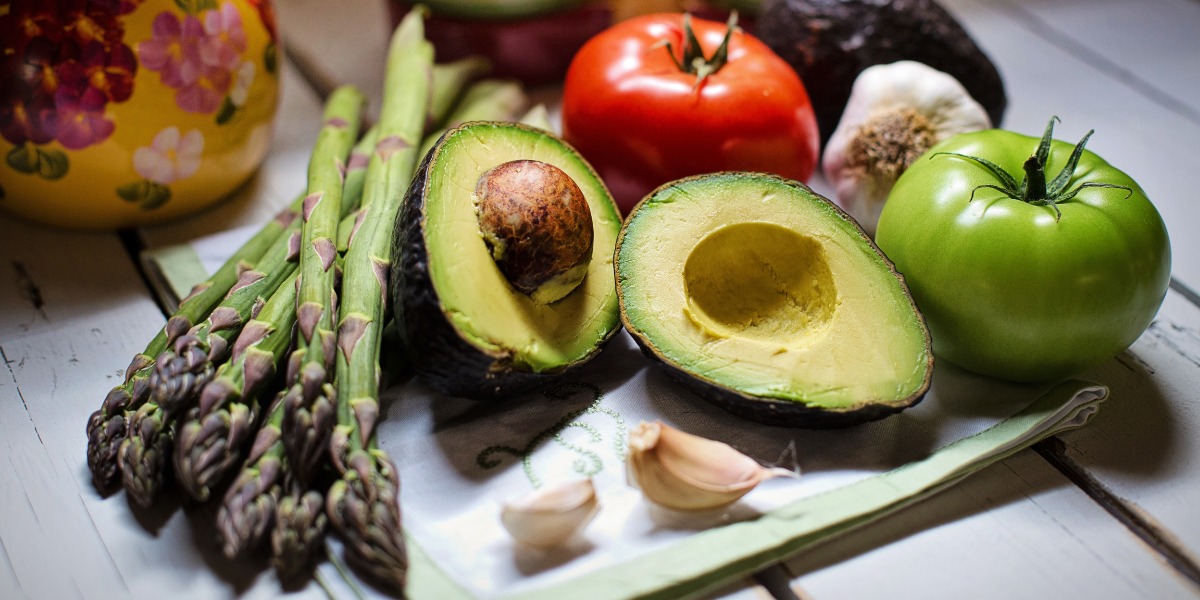
Dietary supplements are regulated by the US Food and Drug Administration (FDA) under the category of ‘food’ and not ‘drugs’. This means that on the label, manufacturers can only claim certain health benefits. Unlike medicines, supplements are not allowed to declare that they can treat, cure, or prevent disease.
For vitamins and minerals, it is advisable to check the % Daily Value (DV) of each nutrient to make sure that you are getting enough and not taking in too much. After all, too much of a good thing can be harmful.
Certain foods can make your IBS worse and the same goes for your eating habits. It’s a good idea to keep a food diary to track your reactions to specific foods. Adhering to a low FODMAP diet and taking vitamins and other supplements can also help in the management of IBS. This article gave you some examples of the best vitamins for IBS.


tx…will be helpful to read…IBS and gut health…